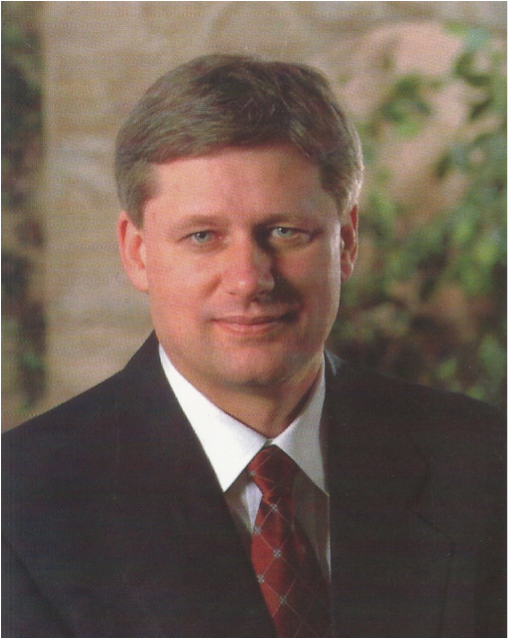
In opposition against “a Phantom Prime Minister”: An interview with Stephen Harper
By: Peter Gill
Ottawa Life Magazine: If you were Prime Minister, how would you deal with Canada's declining military? How much money do you think needs to be invested in it?
Stephen Harper: A lot. Numbers have been thrown around by various groups. The consensus seems to be you need about a billion and half dollars a year over the next 10 years just to maintain the stock of equipment that's going offline. We in the Alliance figure we could afford about $2 billion a year for the military, which is a bit above that figure. That would leave us a long way from where we believe Canada should really be as a nation, but I think that's what we could afford, if we made it a priority in the short term.
OLM: The United States has asked Canada to participate in a possible military strike against Iraq. Canada said it would. Any comment?
SH: It's very unclear at the moment what capacities we could add to this strike. I was pretty clear, notwithstanding the good PR our participation in Afghanistan generated, that we were stretched to the limit there. The recent Senate report suggests we're pretty well stretched to the limit everywhere. Our ability to contribute in a meaningful way is severely limited. Canada should be working with the United States, Great Britain and its international allies to forge a common front in the War on Terror, but our government hasn't in fact joined that front. And that's a pretty serious difference we have. I think it comes down to our view that we are an American ally and western ally first and foremost. And the Government's view is kind of "soft power international neutralist.' I think that's a fundamental disagreement we have with the government.
OLM: Was the U.S. decision to deport a Canadian citizen, Maher Arar, to Syria justified?
SH: We don't know all the facts. Questions were raised about whether it was justified and we haven't got all the answers. The government itself expressed concern. What I raised in the House of Commons was that the Government either didn't know or hadn't revealed all the facts, which is that this individual is a suspected terrorist or suspected to have links to terrorist organizations. And not only did the FBI inform the Government of Canada of that, but the RCMP was apparently already involved in such investigations. So I think whether it was justified or not, it's clear the Government has not been entirely forthcoming with information here.
OLM: Liberal MP Dennis Mills has publicly stated that the "machinery of government is broken" and is not responding to the needs of Canadians. Coming from a Liberal, this is a bold statement. Care to comment?
SH: I would tend to agree. Look, we think that we've been saying since the formation of the Reform Party in 1987 that at least the democratic side or the institutional side of Canada's government needs fundamental reform to be more democratic and reflective of the regional diversity of the country. We're not just talking about individual programs or tinkering with the operations of Parliament, although important things can be done there. We think there should be a more developed system of direct democracy in the country that the citizens can use to ensure the government doesn't get way too far off from where the people think the country should be going. And we favor things like fixed election dates, so the Prime Minister doesn't just have this arbitrary power over the political system. This has been a theme of ours for a long time. You're hearing Liberals saying it more and more and Paul Martin has made statements like this, although less sweeping. What we're really looking for from the Liberals is ultimately to embrace some kind of meaningful proposals that deal with these problems, but they're reluctant to admit to specific problems. They only admit to them in fuzzy general terms.
OLM: A lot of people say that Paul Martin has a lock on the Liberal leadership race. Do you believe this is the case?
SH: I'm not an expert on the Liberal Party, but my observation would be that he has a pretty commanding lead and it would be hard for me to see how it's going to be overcome. We're increasingly operating on the assumption that Paul Martin will be the next Liberal leader. In fact, the interesting thing really with Paul Martin is whether he's already the Liberal leader, given that he not only commands the support of the majority of the Liberal caucus for his leadership, but that this support was able to force the premature resignation announcement of the Prime Minister. It all indicates that we have more then a mere leadership contestant on our hands here. We have a kind of phantom Prime Minister. So this is all pretty unprecedented. The disorganization and disarray in the Liberal party is pretty deep. Let's see who else gets into the race and that will be the big test. But it's not just that Martin has this big lead in caucus support and money, but what impresses me even more is his control over the machinery of the party. This is a machine organization — control over the sales and memberships, who runs executives. In that kind of a party, when you control the machinery it's pretty darn hard for anyone to beat you.
OLM: Is Paul Martin flip-flopping on Kyoto?
SH: Flip-flopping implies you take a position and switch to another one. I think he's straddling the fence and trying to cover several bases at once. His position on Kyoto is unclear and I think it's getting less clear by the day. But I would point out that we really don't know much about Martin's stance on a lot of issues. I think that's part of what's helped his leadership campaign with the general public. I think as time wears on, he's going to have to define himself. Otherwise, it's going to become a problem instead of a benefit. I think that it's not acceptable that somebody who's so near the Prime Minister's Office would not be able to take a clear stand on Kyoto at this point in the debate. I think that raises serious questions about Martin's leadership abilities.
OLM: Alberta, Nova Scotia and Newfoundland stand to lose a great deal of money and jobs with the implementation of Kyoto. Should the federal government provide money to these provinces to offset this loss?
SH: Well first of all, I would quarrel a little bit with the premise of the question. The economic losses of Kyoto will be severe, but they will be much more spread across the country then most people think. Kyoto isn't like the National Energy Program, in the sense that it doesn't just target energy producers. It also targets energy consumers. And 80% of the production of CO2, which is the target of Kyoto, is generated through energy consumption, not energy production. And in fact, where a lot of provinces get hurt or Alberta gets singled out, contrary to what people think, is not just on oil and gas but on the way Alberta produces its electricity, through coal-fired electrical generation. That's not to say that Alberta won't be hit hard. We're seeing that the tar sands are the first affected sector and it is Alberta-based, but there will be widespread effects across the country. The federal government claims that the cost of Kyoto to the economy and to the provinces will be minimal, so why should it be afraid to back those costs? That's the contradiction in its own position. It knows full well that the costs are massive, which is why it won't commit resources. And we have yet to see an implementation plan. I think we're a long way even from that.
OLM: If Kyoto is ratified, could the government of Ontario or Alberta invoke the notwithstanding clause as a way of avoiding the implications?
SH: No, because it's not a charter issue. But the ratification of an international treaty in Canada doesn't bind provincial and lower levels of government to its implementation. So I will say no to that. That's not to say the provinces could not fight it. They could simply refuse to cooperate with Kyoto's implementation. Given the jurisdiction of the provinces over natural resources, I believe the provinces could cripple its implementation. Former Alberta Premier Peter Lougheed has talked about the possibility of the Alberta government using constitutional challenges as well to further limit the federal implementation authority. So the notwithstanding clause is not an option. There are strong provincial levers available that could really damage the implementation plans for Kyoto, if we ever get those plans.
OLM: What about health care? The big issue now is the release of the Romanow and Kirby reports. Do you think the Canada Health Act is flawed in any way? Should it be reformed?
SH: I think that's a less important question. What we have to preserve at the federal level is the core principle that federal funding should assist provinces that are trying to maintain a system where nobody's denied necessary medical service because of inability to pay. That's what people really care about — that they are not denied service or stuck with catastrophic health bills. So provinces are making proposals and, by and large, they all fit those criteria. I don't know whether the Canada Health Act would have to be modified. There's a debate going on about the provision of a wider range of private services through public insurance. Is this something that is or is not permitted in the Canada Health Act? The Act is extremely vague and most of the terms in it have never actually been defined, so you can have a debate about whether it would need to change to accommodate that development. I don't think that matters. What matters is that we preserve what people value about the system. The private provision of publicly insured services should be permitted. The monopoly of provision of services is not a value that in and of itself is worth preserving.








